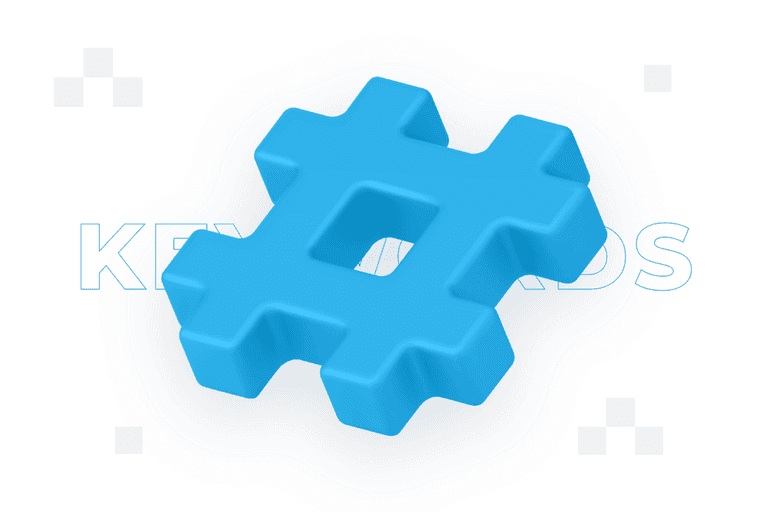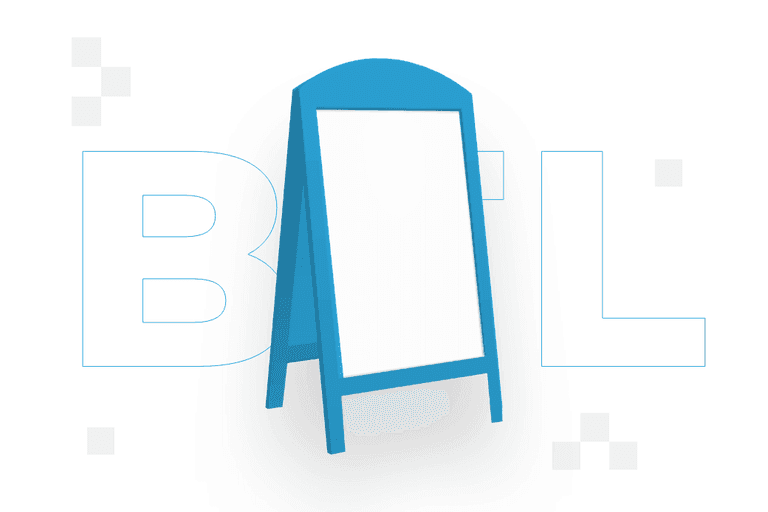Table of contents

Consumer loyalty – what is it and how do you build it?

In an age of ubiquitous competition and ever-changing market trends, consumer loyalty is becoming the golden grail for businesses around the world. How can loyal customers transform a thriving business into an undisputed industry leader?
In this article you will learn:
- What is consumer loyalty?
- What factors influence consumer loyalty?
- What are the relationships between consumer loyalty and customer relationship building?
- How are consumer loyalty and customer engagement related?
- How does consumer loyalty affect customer retention?
- How can consumer loyalty be built?
- How can consumer loyalty be measured?
- What are the benefits of consumer loyalty?
Consumer loyalty – definition
Consumer loyalty is a term used to describe the behaviour of consumers who consistently buy products or services from one brand. Companies strive to cultivate and sustain this because loyal customers are often less price sensitive, can generate recurring revenue and attract new customers through positive recommendations. Consumer loyalty is very important for companies because the cost of acquiring a new customer is usually higher than the cost of retaining an existing one. Companies often invest in various marketing strategies – such as loyalty marketing, among others – to retain their customer base and build long-term relationships.
Consumer loyalty is a customer’s sustained commitment to a brand that manifests itself through regular purchases and positive recommendations.
Definition of consumer loyalty.
It is worth noting that consumer loyalty is the result of a customer’s positive experience, their satisfaction with a product or service offering and evidence of their trust in the brand.
Factors influencing consumer loyalty
Consumer loyalty depends on a number of variables that influence consumers’ purchasing decisions. One of the most important factors is the quality of the product or service – a product that is reliable and meets or exceeds expectations makes customers willing to buy again. This phenomenon is reinforced when a company combines an attractive price with high quality in its offer. Equally important are convenience of use and accessibility. In addition, if a company focuses on excellent customer service and solves problems quickly and efficiently, it strengthens the loyalty of its consumers.
Emotional engagement also plays a role in shaping loyalty – brands that are able to establish an emotional connection with their customers, for example through emotional branding, often enjoy higher loyalty. Psychological aversion to change and attachment to routine also keep customers with a brand. Change can involve risk, and many consumers prefer to stick with tried and tested solutions rather than experiment with new ones.
Customer satisfaction is directly linked to the values the brand offers. These can increase as the product or service is used, leading to a greater propensity to buy again. Loyalty can also be influenced by external factors such as other consumers’ opinions or recommendations. People often trust the opinion of family and friends, and positive recommendations can significantly influence their purchasing decisions and brand loyalty.
Consumer loyalty and building customer relationships
Building customer relationship is a process in which brands seek to establish and maintain ongoing communication and understanding with their customers, prioritising personalisation of the experience and customisation of offerings. This leads to mutual trust and understanding, which is the foundation of consumer loyalty.
Your business should not treat each transaction as an isolated event, but as part of a longer story. Regular interactions, attentive customer service and a willingness to solve problems, even before they occur, build a sense of trust and security. Customers who feel listened to are more likely to buy again.
Consumer loyalty is often the result of a positive relationship with a brand – consumers who experience ongoing satisfaction and have positive associations with a company are more likely to return for more products or services. They may also become brand ambassadors and share their experiences on social networks, which can attract new customers.
Loyalty is the result of investing in the relationship and paying attention to every aspect of the customer interaction. From the moment a customer learns about a product, through the purchase process to after-sales service, every point of contact matters. For this reason, companies often use customer data to further refine and personalise their offering.
Consumer loyalty and customer engagement
Consumer loyalty and customer engagement form a symbiotic relationship. Customer engagement refers to the extent to which customers are active and engaged in interactions with the brand – this includes participation in loyalty programmes, social media interactions, participation in surveys and research and other forms of dialogue with the company. This is often the first step in gaining loyalty – engaged customers are not indifferent to the brand and feel a certain emotional connection that motivates them to interact.
Consumer loyalty flows from this interaction. Brands that are able to leverage and reciprocate customer engagement tend to enjoy a higher number of loyal customers. In turn, customers are more likely to remain engaged because they believe in the brand and feel connected to it.
Customer engagement leads to greater loyalty, which in turn increases the likelihood of further engagement. Companies often create special programmes and campaigns to increase customer engagement – these can include promotional activities or product personalisation opportunities.
Consumer loyalty and customer retention
Consumer loyalty and customer retention are often considered two ends of the same rope. Customer retention refers to a company’s ability to retain customers over a long period of time, prompting them to make repeat purchases and maintain ongoing interaction with the brand. Its basis is consumer loyalty as it relates to the emotional aspect of a customer’s decision to stay with a company. A loyal customer not only buys again, but does so out of a sense of trust, belief in value and often identification with the brand.
High customer retention is the result of building strong consumer loyalty – companies that are able to retain customers usually strive to exceed their expectations by delivering excellent customer service, constantly improving products and adapting services to meet changing needs. This makes loyal consumers less sensitive to competitors’ actions and prices, providing a stable revenue base for the company. A high level of loyalty promotes retention, and effective retention strategies have a positive impact on customers’ perceptions of the brand, which strengthens their loyalty.
Building consumer loyalty
There are many methods for building consumer loyalty. The approach to building loyalty should be holistic and take into account all customer touchpoints. This requires continuity in the delivery of value, as well as the ability to adapt quickly to market conditions and customer expectations. Here are some of the ways to build consumer loyalty:
- Tailoring products, offers and communications to individual customers’ needs and preferences makes them feel special and valued. Personalisation can include using the customer’s name in communications, product recommendations based on purchase history or personalised products.
- Providing excellent customer service, including resolving issues quickly, providing assistance and ensuring an enjoyable brand experience, is one of the best tools for customer retention.
- Creating loyalty programmes that reward customers for repeat purchases or referrals of new customers is a frequently used method of building consumer loyalty, with more than 90% of companies using this method[1]. Programmes can offer points, rewards, discounts, exclusive offers or early access to new products.
- Communicating regularly with customers through various channels, such as email, social media or SMS, helps keep the brand in the minds of customers and allows them to communicate information about new products, special offers or important brand events.
- Offering additional benefits beyond the basic features of a product or service, such as free support, an extra warranty or expert advice, can effectively strengthen consumer loyalty.
- Building a community around the brand through social media platforms, forums or events fosters greater customer engagement and creates a sense of belonging.
- Offering products and services that meet or exceed customer expectations is fundamental – customers need to believe they are getting value for money. It is equally important to invest in product and service development in order to provide customers with news and improvements on an ongoing basis.
- Openness in communication, honesty in marketing activities and transparency on pricing and processes build trust, which is the basis for loyalty.
- Responding to customer feedback online, both positive and negative, shows that your company is listening to its customers and constantly striving to improve their experience. Active listening is also extremely important. In turn, implementing customer feedback shows that your company values their input, and involving customers in product development or service improvements can increase their engagement and sense of influence on the brand.
- Creating a sense of exclusivity – for example, through a VIP club or offer that is only available to a specific group of customers – can increase customer loyalty through a sense of belonging to a select group.
- Corporate social responsibility (CSR) – sustainability practices, support for local communities or community involvement can build loyalty among customers who want to support companies that act in line with their values.
- Providing an exceptional shopping experience, both in-store and online, is key. The in-store experience can be one of a friendly atmosphere and helpful staff, while the online environment will be one of intuitive navigation, page load speed and ease of completing the purchase.
- Investing in technology to facilitate shopping and personalisation, for example through mobile apps, AI chatbots, personalised product recommendations or convenient payment options, can improve the customer experience and increase loyalty.
- Offering valuable content that helps customers make a better use of your products or services can increase customer trust and satisfaction, and therefore loyalty.
- Organising events or offering unique, brand-related experiences can strengthen customers’ emotional attachment.
- Creating a clear, unique value proposition, i.e. clearly communicating what differentiates the brand from the competition, influences customer loyalty as they understand and appreciate the unique value they receive.
Measuring consumer loyalty
Measuring consumer loyalty is a complex process that requires the use of various analytical tools and methods, with the aim of understanding customer behaviour and attitudes towards the brand. Initially, simple metrics such as repeat purchases or frequency of customer visits to a shop or website can be used, but to get a more complex picture, the analysis must also include emotional and behavioural aspects. A variety of tools are used to measure consumer loyalty, including but not limited to:
- Analytics programmes, such as a CRM system – these collect data on customer transactions and interactions with the brand, enabling the creation of customer segments and personalisation of offers.
- Customer satisfaction surveys, including Net Promoter Score (NPS) – asking respondents how likely they are to recommend a brand to others is a popular way to assess propensity for loyal behaviour.
- Social media sentiment analysis – allows you to monitor what customers are saying about a brand online, providing insight into their perceptions and emotional attachment.
- Advanced analytical methods, using artificial intelligence and machine learning, such as predictive modelling, Customer Lifetime Value (CLV) assessment, behavioural segmentation or social network analysis – allow predicting customer behaviour based on their purchase history and identifying factors that influence their loyalty.
The purpose of measuring consumer loyalty is multidimensional. Companies want to know what actions are producing the best results, where adjustments need to be made to strategy, what the brand’s strongest points are and where weaknesses are emerging. Measuring loyalty also allows better segmentation of customers and markets and results in more targeted marketing communications.
Benefits of consumer loyalty
Customers who remain loyal to a brand generate a steady flow of revenue, which gives a company a solid financial base and enables it to plan for the future with greater certainty. Loyal customers also tend to purchase more and are less sensitive to price changes, which increases profitability. In addition, brand loyalists tend to recommend their company’s products or services to others, acting as unofficial brand ambassadors, which can result in the acquisition of new customers at much lower acquisition costs than traditional marketing methods.
A further effect is that consumer loyalty can lead to valuable information on how to improve products and services. Loyal customers are more likely to share opinions and suggestions, which can be important for innovation and product development. It also increases a company’s ability to adapt and evolve in response to changing market needs.
High consumer loyalty also makes a company more resilient to competition – when customers are loyal to a brand, they are less likely to switch to other companies, which can be particularly important in highly competitive market sectors. Loyal customers also have a higher tolerance among customers for mistakes; they are more likely to forgive and stay with a company if something goes wrong. This, in turn, can improve the atmosphere and morale within a company – when employees see that customers are happy, they often feel greater job satisfaction, which translates into better work performance and productivity.
FAQ
Footnotes
Contact form
Build consumer loyalty
Rate content:
You may be interested in:




